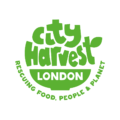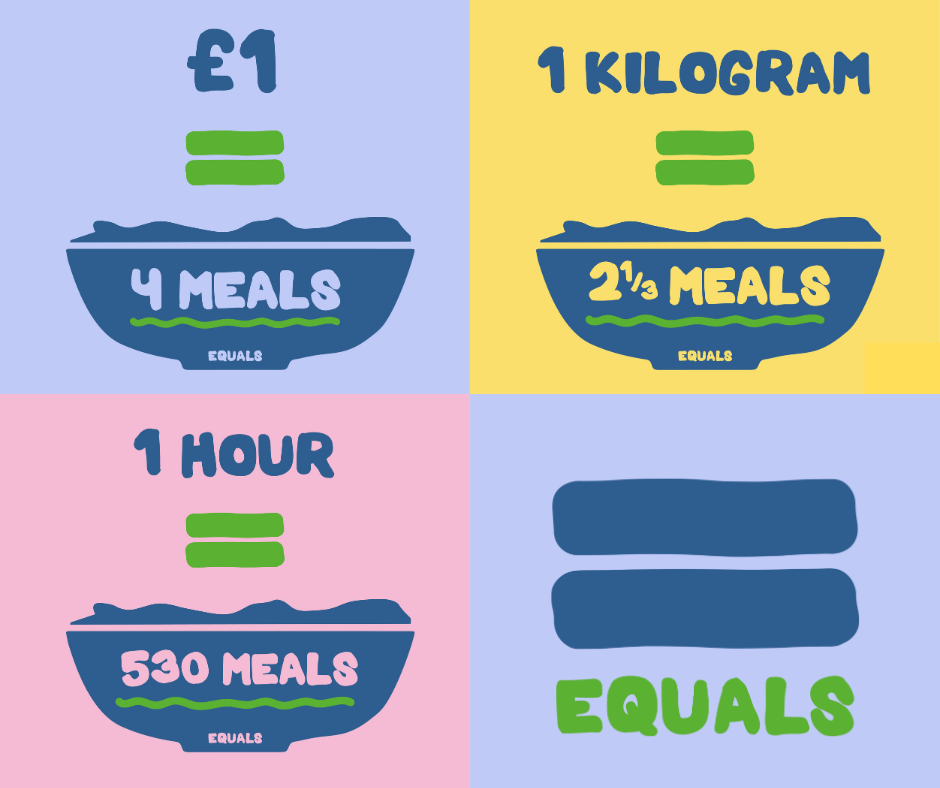TEDxNHS speaker, Nadeen Haidar, talks food poverty in London and how to solve it
Covid-19 has exposed one of the least talked about issues in the UK; food poverty. It is now very much part of our social narrative, accepted as a problem that can strike anyone – not just poor people or ‘those who don’t work’.
To mark World Hunger Day, we speak with Nadeen Haidar, Senior Consultant at UK charity Nesta, who shares her experience working as a dietitian with refugees and the homeless to address the state of hunger in the world, and specifically, London. Nadeen champions a people-powered approach to solve the rising issue of food insecurity in the UK, and in a previous role, mentioned in her talk, she has worked with City Harvest to help feed the hungry by providing surplus food to those unable to access nutritious food.
Nadeen’s experience in her native Syria, as a student in Lebanon, and working in a London homeless charity, will tell you that World Hunger Day is, in fact, every day.
Nadeen’s inspiring TEDxNHS Unlocked talk on food poverty, ‘Why teaching a man how to fish won’t solve food poverty’, resonates with City Harvest as we attempt to tackle the mammoth issue of food poverty in the capital by redistributing surplus food.
Hot water – or feeding the children?
Food poverty, and the wider issue of poverty, is complex and whilst helping to put healthy meals on the table makes a difference, it doesn’t dispel the difficult decisions people face every day, which many of us cannot even begin to fathom.

Nadeen Haidair, TEDxNHS Speaker, Senior Consultant at Nesta’s People Powered Results Team (currently seconded to Liverpool Charity and Voluntary Services (LCVS) as Liverpool’s Good Food Plan Lead)
Since moving to the UK, how have you seen the issue of food poverty change?
Since I moved to the UK in 2015, there were two main milestones that I observed had a big impact on the issue of food insecurity in the UK. The first is the roll out of Universal Credit (Universal Credit is a benefit for people of working age who are on a low income that replaced six existing benefits). During that time, I was supporting young people (age 16-25) that were experiencing homelessness and living temporarily in hostels in different parts of London and I could see the impact the roll out had on the young people I worked with – At that time, young people were receiving £251.77 per month, having to wait a minimum of 5 week before their first payment and having to deal with very complicated processes and administrative failures that caused additional delays in payments. This caused a lot of stress and anxiety and made it nearly impossible to pay for basic necessities. Many of these issues with universal credit have seen little or no improvement since then.
The second, of course, is the COVID-19 pandemic. I helped set up our local mutual aid group in London and food insecurity was one of the main challenges that people were facing. This was the case across the country and several reports have been published since that have highlighted the scale of the food insecurity that was experienced in the past year. This time, people were being pushed into food insecurity for an even wider number of reasons, including a sudden change in employment status, having to shield, having limited mobility, challenges in supply chains of the food system etc.
I also think that public awareness and engagement in this topic has increased too. Many organisations, community groups, grassroot initiatives and volunteers found themselves supporting people experiencing food insecurity for the first time. And in a way, even if very temporarily, we all experienced some level of food insecurity during this pandemic – whether it was worrying about not finding pasta on our supermarket shelf or feeling anxious about potentially losing our jobs. If there is a thin silver lining that has come from this recent and somewhat more collective experience of food insecurity, it would be the increased awareness about and empathy towards this issue. Also, Marcus Rashford’s campaign was a great milestone in the public’s awareness and engagement about this issue. Even though I wish we didn’t need a footballer’s influence to ensure that children in this country aren’t going hungry, his campaign brought food insecurity to the forefront of people’s minds and reminded all of us of the power that we have to create change. Overall it feels like there’s a greater sense of urgency for change.
Having worked on the recipient end of our operation, can you tell us about your first-hand experience working with City Harvest via a London homeless charity and how the food helps those in need?
One of my big frustrations with food insecurity is that it is a problem that does not need to exist – it is not about a shortage of resources at all. It’s about a food system that we’ve designed that unequally pushes people into food insecurity (9% of UK households have experienced food insecurity in the past year), produces a great deal of food waste (4.2 tonnes of avoidable food wasted each year) and has a significant negative impact on our environment (30% of global greenhouse gases come from producing our food).
Ideally, the food industry wouldn’t be wasting high volumes of food and everyone would (be able) to access food with autonomy and dignity. However this was not the case and we had to do something about it, even if it meant supporting young people to access food that would have otherwise gone to waste.
With that in mind, it was great to be able to work with an organisation like City Harvest. The charity I worked for managed over 20 hostels around London and 81% of our young people were experiencing food insecurity. Having many hostels dotted around London, meant that the model of having a van arrive with food once a week worked really well for us. It removed the accessibility barrier and it meant that staff and young people didn’t have to find time and resource to travel to bring food back.
City Harvest would reach most of our hostels each week – and each location would use the food in the way that best works for them. Some would divide them into parcels to give to individuals, some would use them to cook a meal together, others would leave them out for people to take as they please and where we were running our social supermarket, we would use them to widen the variety of stock on our shelves. It made a real difference – it meant that young people had access to a wider range of foods than they normally would, staff and volunteers had the ingredients to prepare food with young people and engage with them in different ways.
How did your experience at a London homeless charity inform or shape your views on food poverty in the UK? – especially with your deeper perspective on nutrition and the psychological effects of hunger on those trying to improve their situation.
When I first started this role, I didn’t realise the extent of food insecurity that people would be experiencing. Coming from Syria and Lebanon and working with Syrian refugees prior to this role, it’s fair to say I had some assumptions about the safety net and the health and social care system in the UK. To clarify, the young people I was working with weren’t street homeless. They lived in hostels and they were regularly in touch with staff. I didn’t expect this group of people to be going to bed hungry or to even be feeling anxious about affording food, which I would consider is a basic human right. I also realised the lack of evidence and data available to better understand and therefore be able to tackle this issue in the UK.
My experience of working directly with people who have (chronically) experienced food insecurity throughout their lives, especially during childhood, also helped me better understand the long term impact of such experiences. Many of the young people I worked with were struggling with a disordered relationship with food as a result of their repeated negative food experiences and needed support to overcome the impact that this had on their physical and mental health.
What were some of the difficult decisions that recipients at Centrepoint had to make daily?
Living on your own in London with only £251.77 per month to spend, every spending choice was a hard choice – I would encourage people reading this to try and work out how they would manage their spending on £63 a week. Even though monthly payments have increased slightly since April 2020, people under 25 are still receiving lower payments, food prices have increased and it is unclear whether this increase in payments is temporary or permanent. Many of the young people I worked with had to make choices between whether to pay rent, pay debts, top up their phone, use public transport, buy food, cooking equipment, clothes or socialise. Anyone would be faced with these difficult choices on that level of income. It’s important to keep in mind that that food budget is adjustable and many other costs like rent for example aren’t and therefore food is often one that takes a big hit on a small budget.
How does your current role weigh in on finding solutions to society’s greatest problems, notably food poverty?
My current role is all about bringing people together to tackle challenges that don’t have a simple answer that everyone would agree on – these challenges that are no one’s problem but also everyone’s problem – like food insecurity. We work with local places to create change that sticks and that is for the better (this is important because we know that not all change is good!). We match top-down listening, power sharing and unblocking with bottom-up insights, solutions and ideas. We do that by creating inclusive spaces for collaboration and we use creative facilitation to unlock a wide range of expertise. From defining the problem, to coming up with solutions and measuring impact – we rely on the power of people who are most affected by the problem. Through experimentation and regular spaces for reflection, we support people within systems to identify the conditions that are needed for systemic change i.e. the policies that are in place, the ways resources are managed, relationships and power dynamics. These are the things that hold the status quo in place.
How do you think we can work collectively, organisations and individuals alike, to change people’s attitude towards hunger and those experiencing it in the UK?
There’s a lot of great work that is already taking place and we need to keep building on that and not to lose momentum. It’s important to acknowledge and remind ourselves that this problem isn’t going away as the pandemic ceases. Food insecurity was on the rise before the start of the pandemic and will continue to rise if we don’t collectively continue doing something about it. To me the priorities are:
-
Building the evidence base
- Challenging stigma
-
Acknowledging complexity
-
Ensuring that emergency food provision is the temporary solution
Watch Nadeen’s TEDxNHS Unlocked talk below:
Food poverty in London is real and on the rise, with almost 2 million Londoners facing food insecurity daily.
City Harvest, working in alliance with over 350 London charities, redistributes nutritious surplus from the food industry to those who need it most in London. Help us to broaden our reach and provide increasingly more healthy and culturally appropriate food for vulnerable Londoners. Donate now to keep our vans rolling to feed London.


